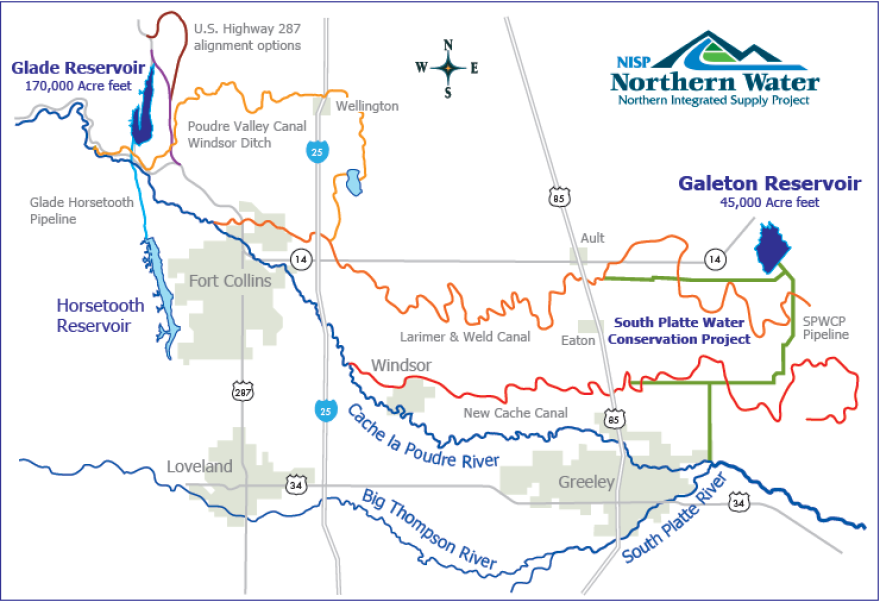A potential piece of legislation proposed by Congressman Cory Gardner (R) regarding water storage is being criticized by Fort Collins environmental group Save the Poudre. At stake is the future of the Northern Integrated Supply Project or NISP.
NISP would create the Glade Reservoir northwest of Fort Collins; so far it has only existed on paper. The reservoir would be filled with water diverted from the Poudre River during high flows. The project was proposed nearly a decade ago by Northern Water to provide 15 counties, towns, and water districts an additional 40,000 acre feet of water a year.
“They built the Pentagon in less time than it’s taken to get a permit for NISP,” said Gardner. To remedy the delay, Gardner says he’ll introduce legislation to create an office of water storage inside the Army Corps of Engineers.
“If a governor of a state approves of a project then they notify this office of their approval, the office of water storage,” Gardner said. “Once that takes place, those permitting agencies have an expedited time period that they must approve or deny the permits.”

The legislation is anything but simple according to Gary Wockner, director of Save the Poudre.
“Congressman Gardner has been one of the most radical anti-environmental members of congress since he got there,” said Wockner. “This is just another sort of publicity stance for him to try to undermine environmental laws and the Clean Water Act.”
Save the Poudre says its mission is to protect and restore the Poudre River from numerous threats including NISP.
Wockner says his group is determined to stop the project from continuing and cites a 2008 Environmental Protection Agency report that found NISP did not meet standards of the Clean Water Act and had the potential to harm wildlife and water ecology in the Poudre River.
For a project as large as NISP, Wockner says scientists need the time to explore potential environmental concerns. “In order to do a study of the impacts of a major dam and reservoir project it requires sound science, and sound science takes time,” Wockner continues, “and pushing the corps forward may actually ironically have the opposite effect which would be force the corps to turn down every project because they can’t possibly do it.”
Gardner’s legislation would propose setting a timeline just short of nine months for the Army Corps of Engineers to approve or deny a project. “So it doesn’t change the law in terms of environmental analysis,” said Gardner. "It just says 'hey, you gotta make a decision yes or no.'"
A second EPA study is set to be released in 2014 with a final decision on NISP coming sometime in 2016.
In the meantime, movement on the project continues. On Wednesday, The Denver Post reportedthe Colorado Department of Transportation has approved the rerouting of Highway 287 around the project. If NISP is approved, it would allow the $40 million highway project to proceed.







